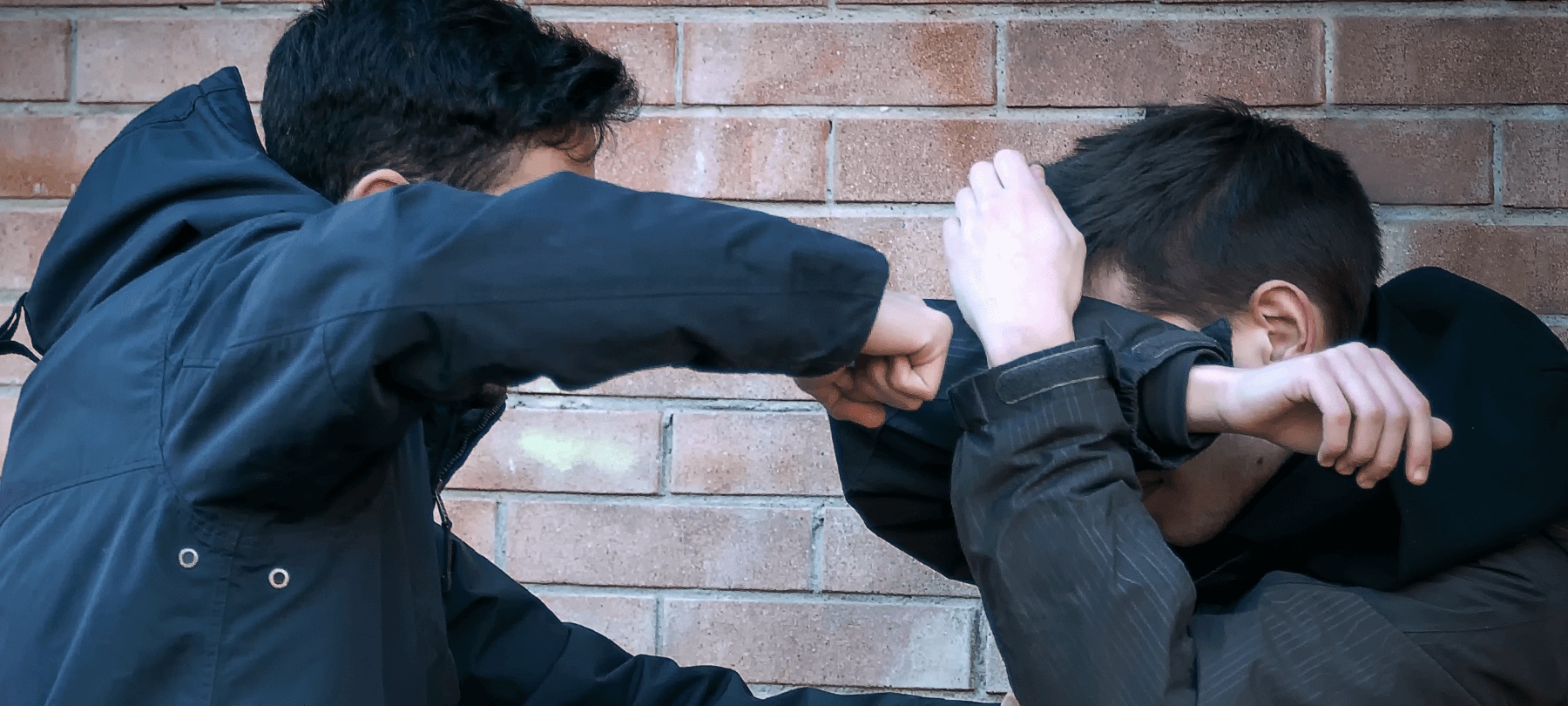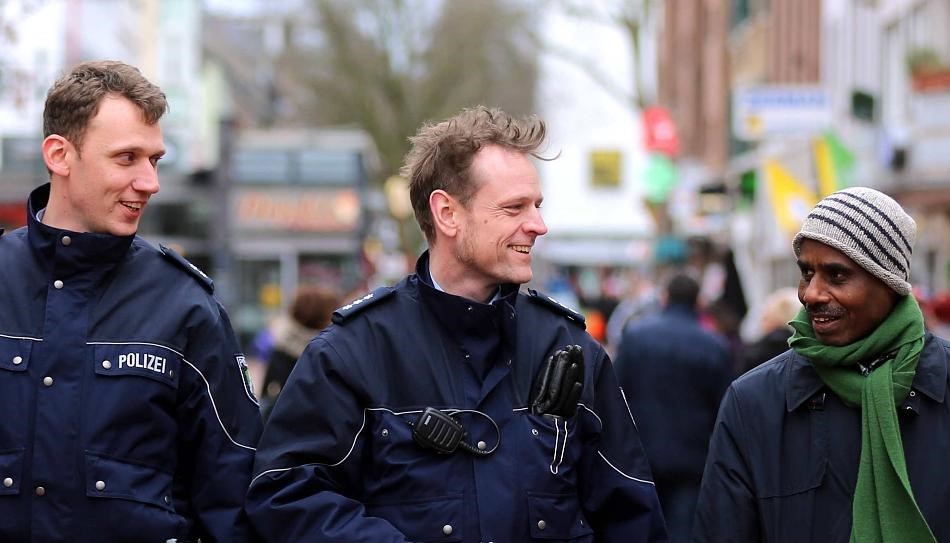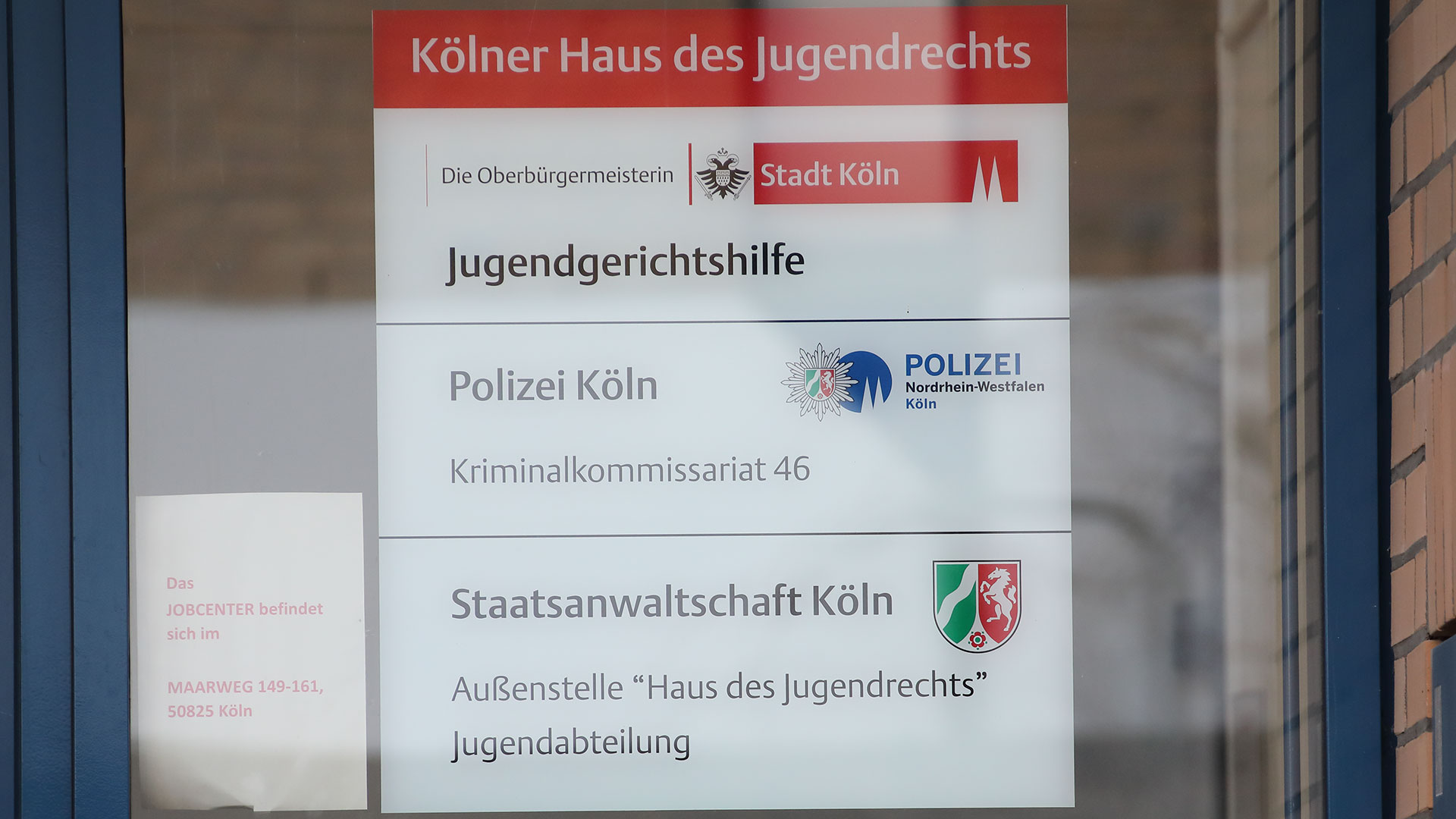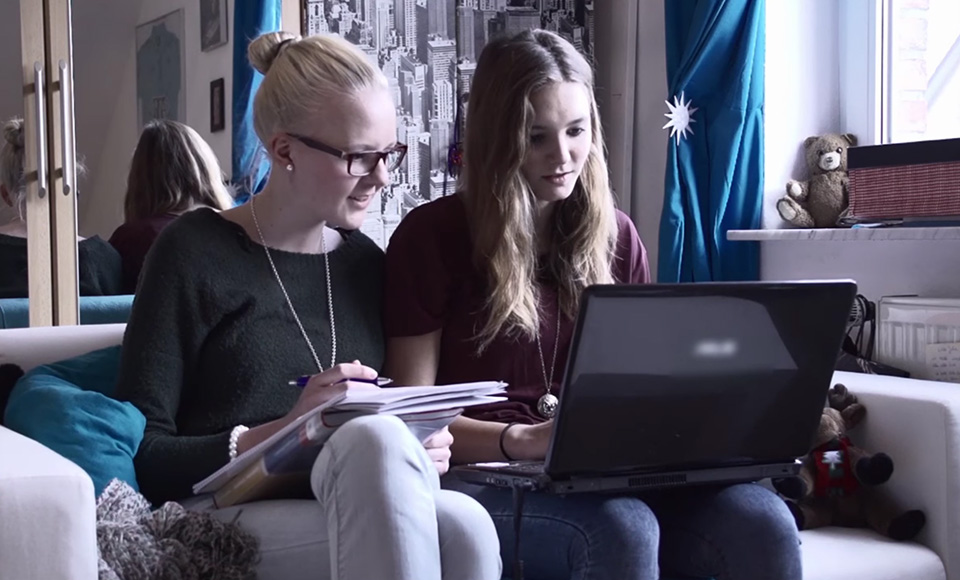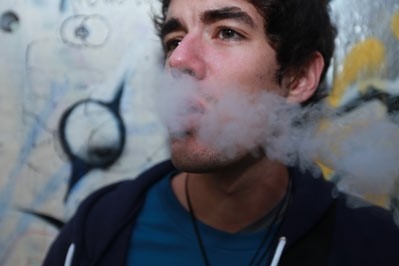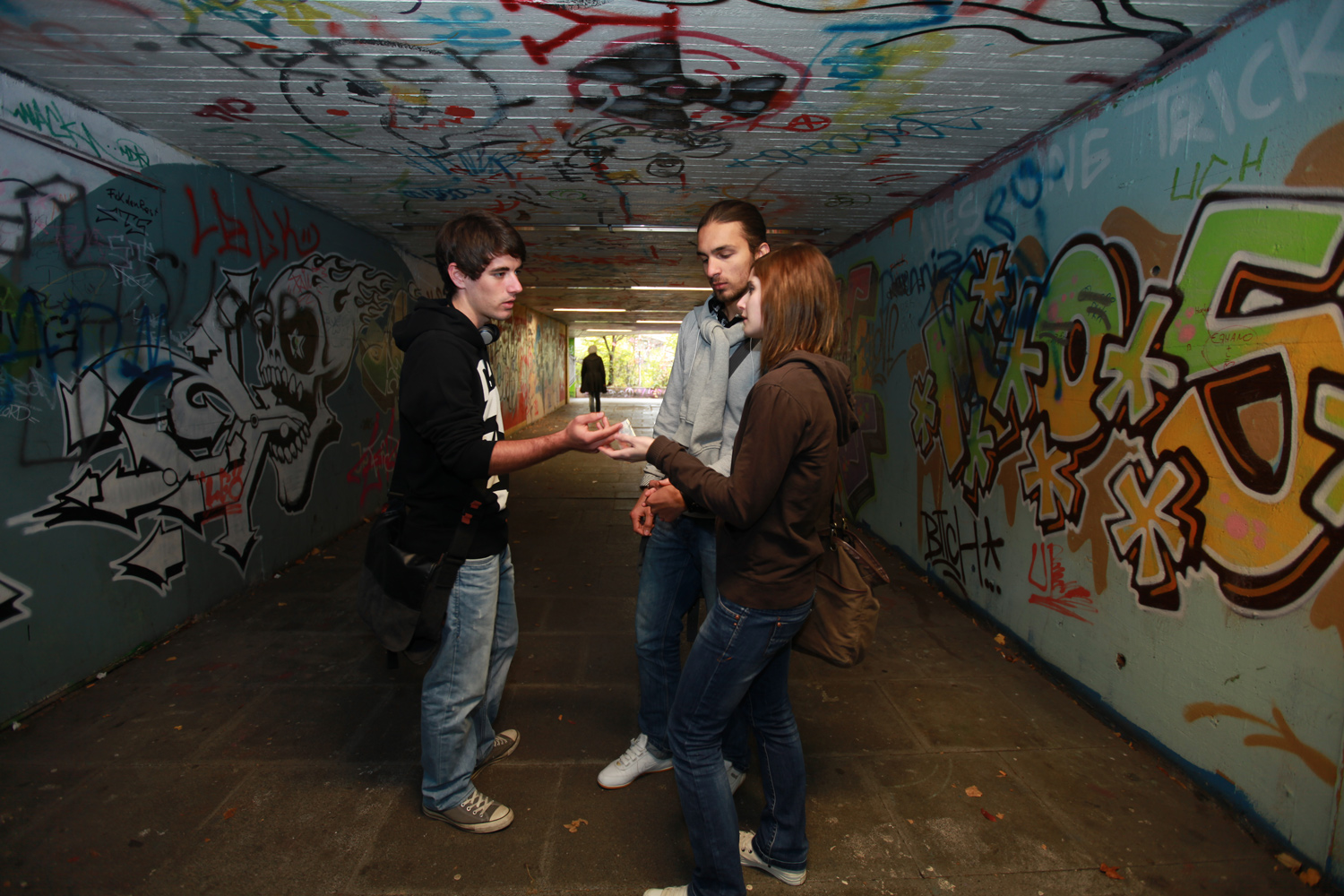About one in four suspects registered with the police is under the age of 21, the majority of whom are male. Young offenders mainly commit crimes close to home. The focus is on property and bodily injury offenses as well as damage to property. Graffiti, damage to public or private property, simple or dangerous bodily harm, verbal aggression, insults, threats, the phenomenon of "ripping off" (robbery or predatory extortion) and blackmail by children, young people and adolescents show that young people seek recognition, influence and power in the most diverse and sometimes unlawful ways. And that they often do not yet have the skills to resolve their conflicts peacefully.
When children and young people commit criminal acts, this should always be an opportunity to find out why. For the most part, such offenses are developmental phenomena that disappear with increasing age, changes in living conditions - boyfriend or girlfriend, end of puberty, entry into working life - or under the influence of educational measures.
However, deviant behavior is often a symptom of deeper emotional distress or social conflicts. If you want to prevent children and young people from continuing to commit crimes in the long term, criminal sanctions alone are not enough. The actual causes of their behavior must be identified, dealt with and remedied. When it comes to preventing and curbing juvenile delinquency, all social groups and government agencies must work together according to their respective mandates and capabilities.
Situation picture "Youth crime and youth endangerment in NRW"
The situation report "Youth crime and youth endangerment in NRW", published by the State Criminal Police Office of North Rhine-Westphalia, provides an overview of facts and figures on youth crime registered by the police.
Information and help
For further information on the topic of "juvenile delinquency", personal advice or an individual discussion, the crime prevention/victim protection departments of the local district police authorities are available. You can find their contact details at: Counseling center search. Please bear in mind that every police officer must prosecute a criminal offense if they are aware of it (mandatory prosecution in accordance with Section 163 of the Code of Criminal Procedure).
In problem situations, the educational counseling centers of the youth welfare offices and the educational and family counseling centers of church and municipal institutions are available. They are responsible for specific locations and their contact details can be found online or in the local telephone directory.
The Police Crime Prevention Program of the Federal States and the Federal Government (ProPK) provides further information on the phenomena of juvenile delinquency and corresponding prevention media on the website www.polizei-beratung.de. They can be accessed at Topics & Tips and via the media offer.
For children and young people between the ages of 12 and 15, the Police Crime Prevention of the Federal States and the Federation (ProPK) offers the website "Police for you". At www.polizeifürdich.de, children and young people can find target group-oriented information on topics relevant to the police and youth protection, such as gambling, dance events and alcohol consumption.
Youth protection - What's up?
The provisions of the Youth Protection Act are intended to protect children and young people from negative influences in public. This includes, for example, participation in public dance events, going to discos, going to the cinema or the sale of tobacco products and alcohol to children and young people, as well as regulations on their consumption.
Age-appropriate access to media is also regulated by the Youth Protection Act. Here, special protection against the negative influences of media is ensured through the age labeling of cinema and video films and the labeling of computer games.
The Youth Protection Act and the Interstate Treaty on the Protection of Minors in the Media are not aimed directly at children and young people, but, in addition to parents and educators, at event organizers and traders as well as Internet and broadcasting providers in particular. They must ensure the protection of minors and will be held responsible in the event of violations.
Important information for download
The media portal of the Police Crime Prevention of the Federal States and the Federation (ProPK) provides you with a leaflet containing the most important provisions of the Youth Protection Act (JuSchG). The leaflet contains the main youth protection regulations in German, English, French, Arabic, Farsi and Kurmanji.
The leaflet contains an overview:
- to stay in restaurants,
- to visit a discotheque/public dance event
- to go to the cinema or
- to supply tobacco products and alcohol to children and young people and to consume them
